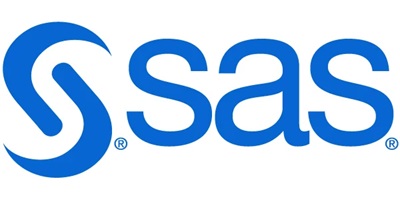Marlow, UK – Generative AI (GenAI) is at the forefront of global innovation in both healthcare and life sciences. To better understand how technology is being used, data and AI leader SAS and Coleman Parkes Research conducted a global, cross-industry survey of 237 life sciences and pharma leaders and 240 healthcare leaders who are decision makers on their organisation’s GenAI, data and analytics strategy.
The study offers a deep dive into how these sectors are implementing GenAI, what their biggest challenges are and how healthcare and life sciences compare to industries like insurance, the public sector, banking, manufacturing and more.
Healthcare leans into GenAI innovation
The GenAI research for the healthcare sector revealed that leaders can envision the technology’s transformative ability and are optimistic about the potential for GenAI to support and complement the work of doctors, researchers and other healthcare professionals. More specifically:
-
46% of healthcare organisations currently use the technology, compared with 54% on average across all sectors.
-
Within the healthcare industry, 95% of organisations are already using or have plans to adopt GenAI within the next two years.
-
87% of healthcare organisations plan to invest in GenAI in the next financial year and 92% of those investing have a dedicated GenAI budget for the next year.
-
In organisations that have already integrated GenAI, the top measurable outcome is efficiency at processing large data sets (89%), followed by risk management and compliance measures (88%).
“The unique challenges and diverse functions of the healthcare sector demand special consideration to regulatory and compliance issues, data sensitivity, interoperability and bias in AI algorithms,” said Alyssa Farrell, Global Health and Life Sciences Industry Marketing Director at SAS. “The adoption of GenAI in healthcare is projected to rapidly catch up as the industry addresses these concerns.”
Life sciences on the brink of GenAI-driven transformation
The GenAI research for life sciences and pharma found the industry is steadily embracing the technology. Leaders use the technology more regularly, are better prepared when it comes to GenAI usage policies, and an overwhelming majority plan to invest in it the next financial year. Specific findings include:
-
58% of life sciences organisations currently use the technology, compared with 54% on average in all sectors.
-
Within the life sciences industry, 97% of organisations are already using or have plans to adopt GenAI.
-
85% of life sciences organisations plan to invest in GenAI in the next financial year and 92% of those investing have a dedicated GenAI budget for next year.
-
86% of life sciences organisations using GenAI report increased efficiency in processing large data sets and 79% have experienced operational cost and time savings with the technology.
“The life sciences sector is looking toward a GenAI future with strong rates of organisational use – and the budgets to back it up,” said Farrell. “The technology’s strengths in prediction and modeling suggest incredible potential to accelerate initiatives across the entire value chain, from R&D through clinical trials and commercialisation. Leaders are feeling positive about what GenAI can do, particularly when it comes to innovating and maintaining a competitive advantage.”
Data privacy and security ranked as top concerns
As GenAI technology expands, issues of data privacy and security uniquely affect leaders in healthcare and life sciences. These industries deal with sensitive and high-stakes outcomes and face particularly significant ethical and regulatory considerations. The research revealed:
-
Greater than three-quarters of leaders in life sciences (79%) and healthcare (77%) report they are uneasy about data privacy and security when it comes to using GenAI in their organisation.
-
62% of healthcare organisations and 59% of life sciences organisations name governance as a leading concern for GenAI – higher percentages than almost all other industries.
-
Only 14% of life sciences leaders and 9% of healthcare leaders say their organisations’ current AI governance framework is well-established and comprehensive.
Synthetic data embraced for data challenges
Synthetic data is increasingly being used in the healthcare and life sciences industries to train and test AI systems in place of or in addition to real-world data. It also can augment data used to simulate patient workflows or supply chains. Synthetic data addresses data scarcity challenges by generating synthetic tabular data that statistically represents original training data without compromising sensitive patient health information.
The GenAI study revealed heightened openness to addressing data challenges – like data quality, scarcity and privacy scenarios – through synthetic data in both healthcare and pharma. Currently, 56% of life sciences organisations and 46% of healthcare entities are already using synthetic data or actively considering doing so.
“Data is the lifeblood of the digital health ecosystem. Continued investment in interoperability and data governance is key to provide the fuel for a GenAI future,” said Farrell. “Incorporating synthetic data and technology, such as digital twins, is yet another way to derive more value from data for the benefit of patients and population health outcomes.”
Explore SAS data and AI innovation
Register for SAS Innovate, May 6 – 9 in Orlando, to learn more about SAS data and AI innovations for the healthcare and life sciences industries. Check out the full agenda with industry and tech specific session information here: https://www.sas.com/en/

















![Sirio Launches Global Research Institute for Longevity Studies [SIA]](https://www.worldpharmatoday.com/wp-content/uploads/2019/09/Sirio-218x150.jpg)


